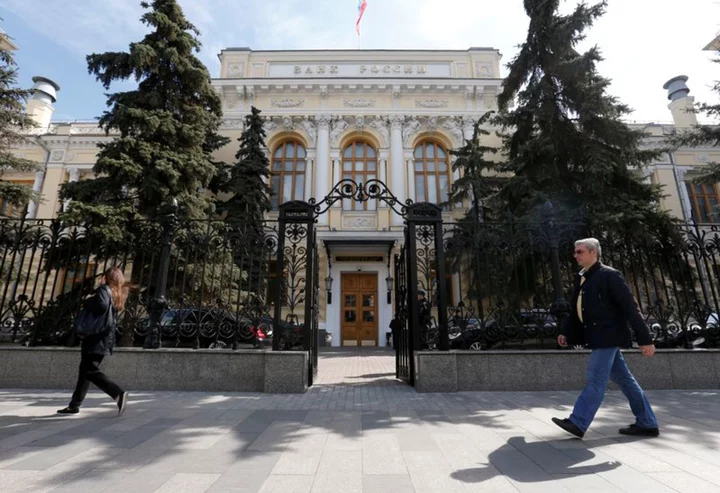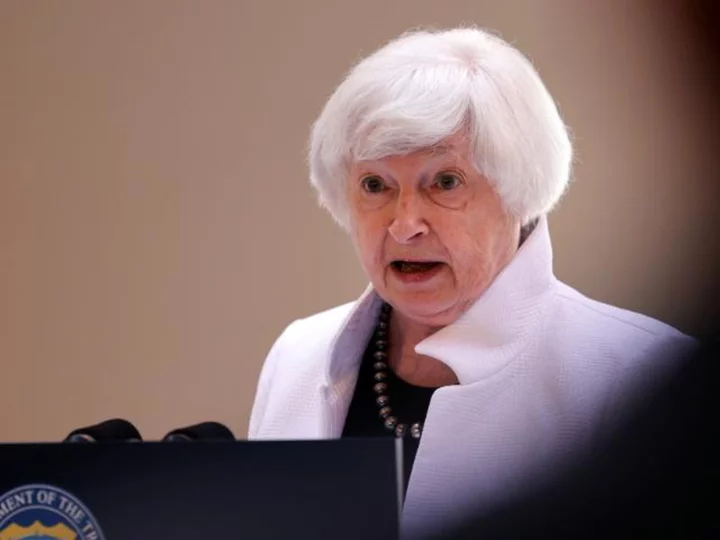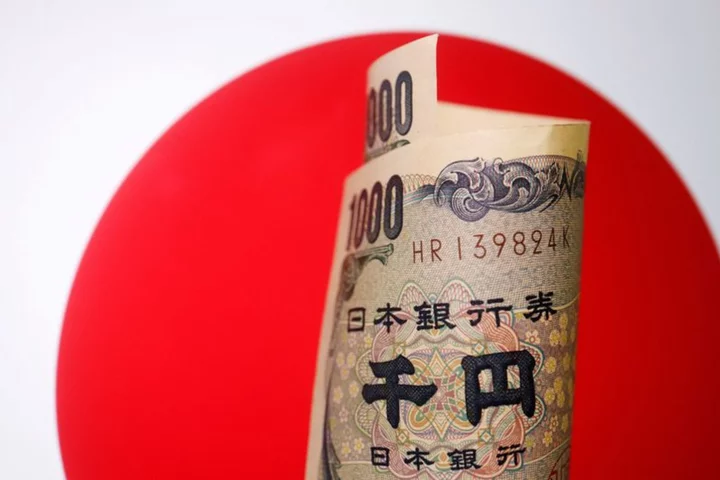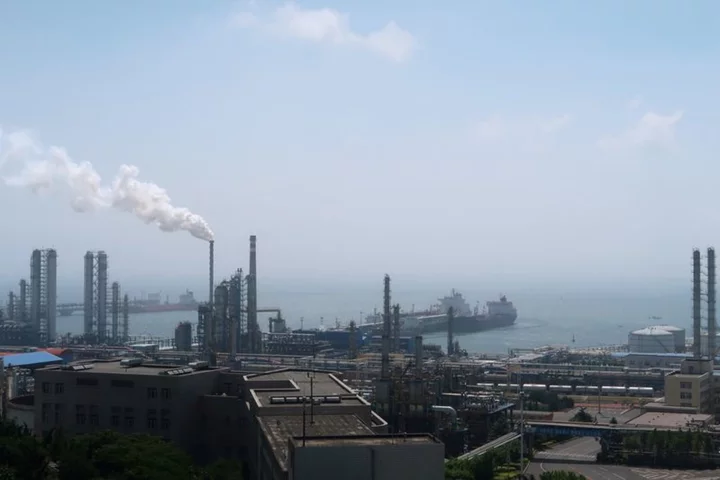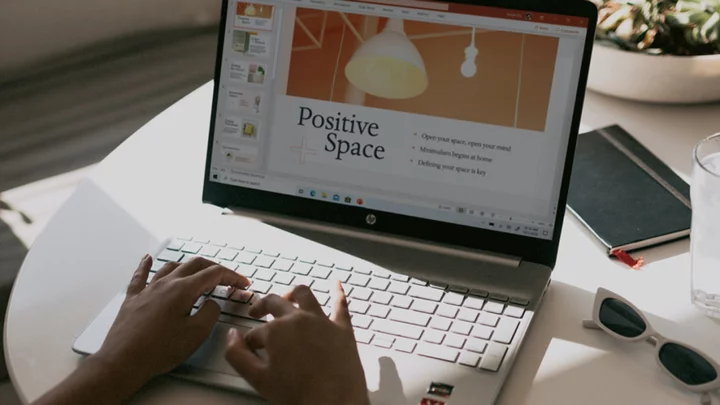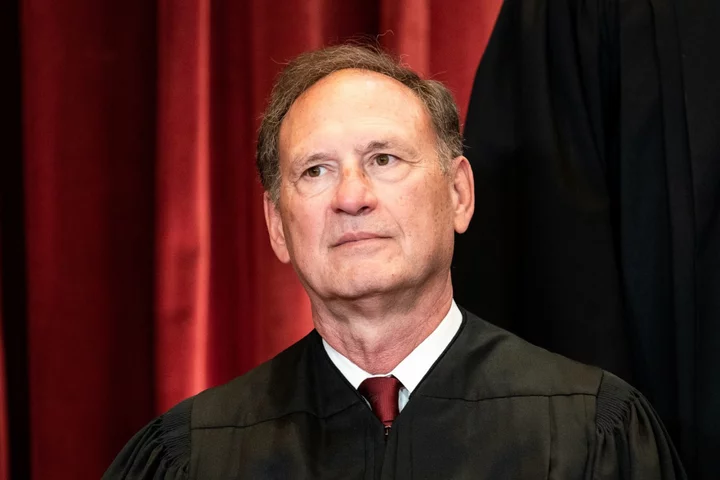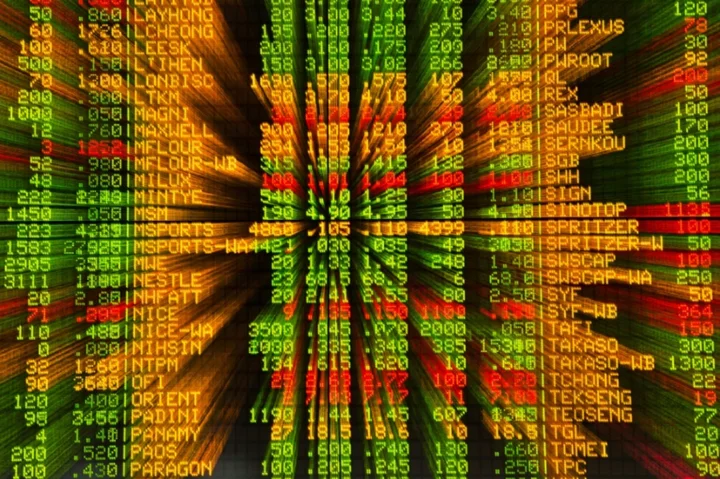MOSCOW Russia's central bank raised its key interest rate by a greater-than-expected 100 basis points to 8.5% on Friday, raising the cost of borrowing as the weak rouble added to inflation pressure from a tight labour market and strong consumer demand.
It was the first time the bank had lifted rates in more than a year, having gradually reversed an emergency hike to 20% made in February last year after Russia sent its armed forces into Ukraine, which prompted the West to impose sanctions on Moscow. Its last cut, to 7.5%, was in September.
"The increase in domestic demand surpasses the capacity to expand production, including due to the limited availability of labour resources," the bank said in a statement.
This was reinforcing persistent inflationary pressure, it said, while the rouble's depreciation this year was "significantly amplifying proinflationary risks".
The central bank raised its year-end forecast for inflation - now just below 4% - to 5.0-6.5% from 4.5-6.5%, and said it was holding open the possibility of further hikes at future meetings.
The decision surprised analysts polled by Reuters, who had forecast a 50-basis-point hike.
However, some analysts had revised their forecasts in recent days to anticipate an even larger rise as inflation data this week showed a jump in households' inflationary expectations for July and an acceleration in Russia's weekly consumer prices.
Annual inflation had fallen below the bank's 4% target in recent months, due to the high base effect from last year when inflation spiked to its highest level for over 20 years.
It is now running at 3.86%, the economy ministry said this week, and rising once more.
Pressure has increased on the Russian currency after an abortive armed mutiny by the Wagner mercenary group in late June. Attacks on Russian infrastructure, which Moscow has blamed on Ukraine, have also dampened risk appetite.
Central Bank Governor Elvira Nabiullina will shed more light on the bank's forecasts and policy in a media briefing at 1200 GMT.
The next rate-setting meeting is scheduled for Sept. 15.
(Reporting by Reuters; Writing by Alexander Marrow; Editing by Andrew Osborn and Kevin Liffey)

